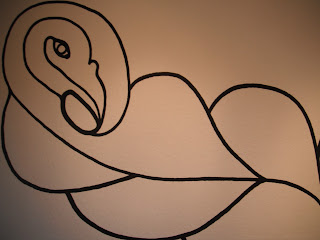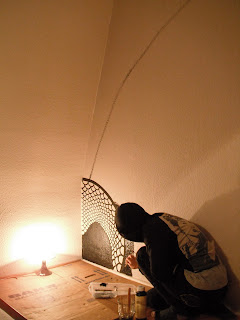On this journey I've had the pleasure of learning what it is I'll do when left to my own devices...

Webster's dictionary defines chaos as "the disorder of formless matter and infinite space, supposed to have existed before the ordered universe", and "extreme confusion or disorder." In terms of systems, chaos is a state space (the condition of any system at a given time) where a system exhibits disorder, confusion, uncertainty, or instability. The dictionary defines order as "a fixed or definite plan; system; law of arrangement." In terms of systems, order is a state space where a system exhibits clarity, certainty, or stability. Chaos and order can be considered polar opposites. We can go even farther here because, according to Çambel, order and chaos, or determinism and chance, are like two sides of the same coin, and contrary to traditional thinking, there is no cause-and-effect relationship between the two.
Complex systems are systems that contain so much motion (so many elements that move) that computers are required to calculate all the various possibilities. That is why Chaos Theory could not have emerged before the second half of the 20th century.
But there is another reason that Chaos Theory was born so recently, and that is the Quantum Mechanical Revolution and how it ended the deterministic era.
But there is another reason that Chaos Theory was born so recently, and that is the Quantum Mechanical Revolution and how it ended the deterministic era.




















